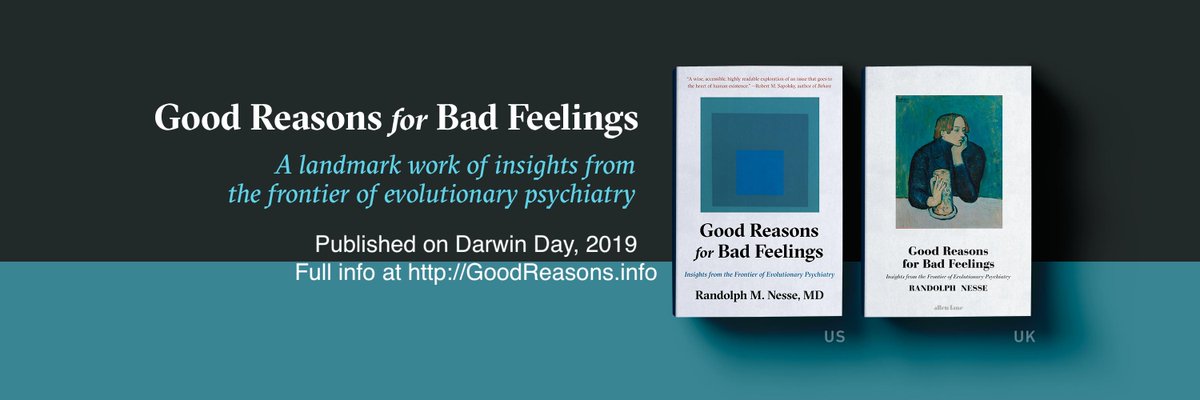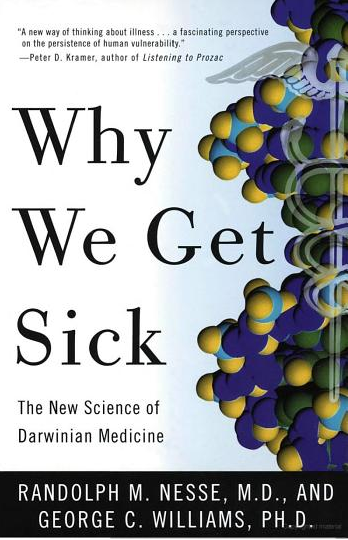
A founder of the field of evolutionary medicine, now encouraging psychiatry to find its missing foundation in evolutionary biology. https://t.co/bJUooCCO2w
How to get URL link on X (Twitter) App


 I will summarise the main points in tweets over the next few days. The core thesis: many of psychiatry's problems can be addressed by adopting the foundation in evolutionary biology that transformed our understanding of animal behavior 50 years ago. randolphnesse.com/articles/menta…
I will summarise the main points in tweets over the next few days. The core thesis: many of psychiatry's problems can be addressed by adopting the foundation in evolutionary biology that transformed our understanding of animal behavior 50 years ago. randolphnesse.com/articles/menta…



 The day between #DarwinDay and #ValentinesDay gives an opportunity to respond to questions about
The day between #DarwinDay and #ValentinesDay gives an opportunity to respond to questions about 
 Most of us who have prescribed antidepressants for thousands of patients have heard hundreds of them report transformed lives. “It is as if I walked out of a dark room into sunlight” “All of a sudden I can experience pleasure again”
Most of us who have prescribed antidepressants for thousands of patients have heard hundreds of them report transformed lives. “It is as if I walked out of a dark room into sunlight” “All of a sudden I can experience pleasure again” 

 Quick tips can help but they can be worse than useless. Exercise, eat right, get sleep, talk with friends, and challenge negative thoughts. Like diet suggestions, they can help, but they can be hard to follow, ineffective, or prone to make some people feel like failures.
Quick tips can help but they can be worse than useless. Exercise, eat right, get sleep, talk with friends, and challenge negative thoughts. Like diet suggestions, they can help, but they can be hard to follow, ineffective, or prone to make some people feel like failures.

 From the Preface: I wanted to write this book as soon as I realized that evolution could explain why bodies are vulnerable to disease. But the rest of medicine had to come first. Why We Get Sick stirred lots of interest. The new book is about why mental illness exists at all.
From the Preface: I wanted to write this book as soon as I realized that evolution could explain why bodies are vulnerable to disease. But the rest of medicine had to come first. Why We Get Sick stirred lots of interest. The new book is about why mental illness exists at all. 